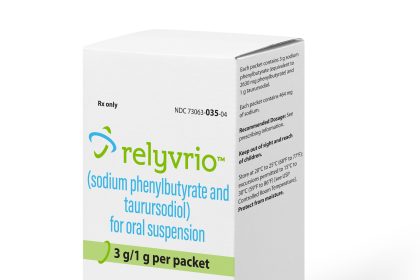FDA Approves Biosimilar for Treatment of Multiple Inflammatory Diseases

WASHINGTON — The Food and Drug Administration on Tuesday approved Wezlana, a biosimilar interchangeable with Stelara for the treatment of multiple inflammatory diseases.
The agency said its approval of Wezlana, which is manufactured by Amgen, was based on a comprehensive review of scientific evidence demonstrating that it is highly similar to Stelara, and that there are no clinically meaningful differences between the two products in terms of safety, purity and potency.
Like Stelara, the most serious known side effect of Wezlana is infection, with the most common adverse reactions being, among others, upper respiratory tract infection, headache, fatigue, nausea, vomiting, sinusitis, abdominal pain, influenza, fever and diarrhea.
“Biosimilar medications offer additional safe and effective treatment options that have the potential to increase access for people requiring treatment for inflammatory diseases,” said Dr. Nikolay Nikolov, director of the Office of Immunology and Inflammation in the FDA’s Center for Drug Evaluation and Research.
“Today’s approval could have a meaningful impact for patients managing their disease,” he said.
The FDA’s approval means Wezlana can now be used to treat adult patients with:
- Moderate to severe plaque psoriasis who are candidates for phototherapy or systemic therapy.
- Active psoriatic arthritis.
- Moderately to severely active Crohn’s disease.
- Moderately to severely active ulcerative colitis.
It can also be used to treat pediatric patients aged 6 and older with:
- Moderate to severe plaque psoriasis who are candidates for phototherapy or systemic therapy.
- Active psoriatic arthritis.
The agency recommends health care professionals review the prescribing information in the labeling for detailed information about the approved uses.
A biosimilar is a biological product that is highly similar to, and has no clinically meaningful differences from, a biological product already approved by the FDA, also called the reference product.
An interchangeable biosimilar is a biosimilar that has been shown to meet other requirements under the law and may be substituted for the reference product without consulting the prescriber.
The substitution may occur at the pharmacy, subject to state pharmacy laws, which vary by state, a practice commonly called “pharmacy-level substitution” — similar to how generic drugs are substituted for brand name drugs.
“Today’s approval exemplifies the FDA’s longstanding commitment to support a competitive marketplace for biological products,” said Dr. Sarah Yim, director of the Office of Therapeutic Biologics and Biosimilars in the FDA’s Center for Drug Evaluation and Research.
“This approval can empower patients by helping to increase access to safe, effective and high-quality medications at potentially lower cost,” she said.
The labeling for Wezlana, like Stelara, contains a warning to alert health care professionals and patients about an increased risk of serious infections leading to hospitalization.
There is also a warning that some malignancies, hypersensitivity reactions and cases of posterior reversible encephalopathy syndrome have been reported in patients who received Wezlana in clinical studies.
Wezlana must be dispensed with a patient Medication Guide that describes important information about its uses and risks.
Dan can be reached at [email protected] and at https://twitter.com/DanMcCue

























